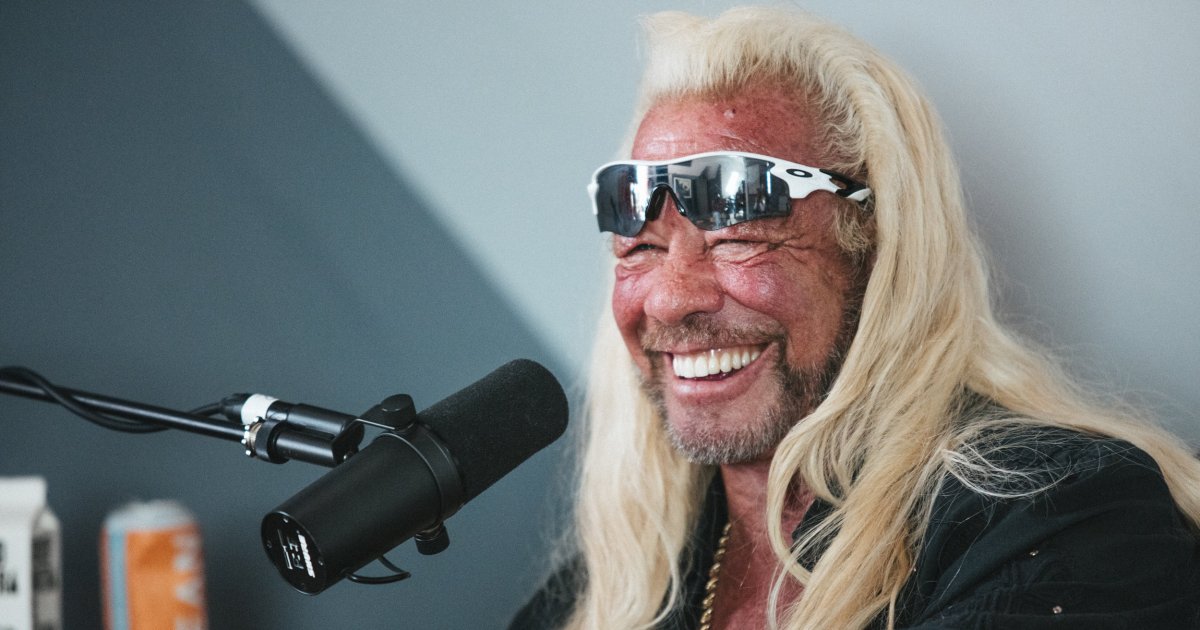Kicking the Habit
- Duane “Dog” Chapman’s fiancé is pushing him to quit smoking by the beginning of January 2021; Chapman lost his first wife to stage 4 lung cancer in 2019.
- Smoking is the leading cause of lung cancer; 80% of lung cancer deaths are caused by smoking.
- Quitting smoking can significantly decrease your risk of lung cancer and lead to more successful outcomes after surgery.
Chapman, 67, has been a heavy smoker for years, but since meeting Francie Frane, his lifestyle has gotten a whole lot healthier. Not only has she made him incorporate fruits and vegetables into his diet, and hit the gym more often, but now she’s demanding he put down the cigarettes. “I want him to quit [smoking],” Frane tells Dr. Oz about Chapman. “I want you here.”
Read MoreBeth was initially diagnosed with throat cancer, which ended up spreading to her lungs. Smoking is the leading cause for both lung and throat cancer, so by quitting, Chapman can simultaneously reduce chances a possible cancer diagnosis and not be out of breath while filming his new show Dog’s Unleashed.
Smoking’s Link to Lung Cancer
Lung cancer is the second most common cancer and the leading cause of cancer death in the United States. Even though people who don’t smoke can also be diagnosed with the disease, those who smoke are at significantly higher risk. The tobacco in cigarettes is a carcinogen that causes mutations in lung cells and enables the growth of cancer. In fact, according to the American Cancer Society, about 80% of lung cancer deaths are caused by smoking.
It’s worth noting that even if you’ve never touched a cigarette in your life, you’re also at risk if you’re regularly surrounded by people who do smoke. Several thousand other lung cancer deaths are caused by exposure to secondhand smoke.
Related: I Don't Make People Feel Bad About Smoking: A Thoracic Surgeon's Perspective
“If you’re smoking, don’t smoke,” Dr. Joseph Friedberg, the head of the Division of Thoracic Surgery at the University of Maryland School of Medicine, previously told SurvivorNet in an interview. “You never return down all the way to the person who never smoked as far as your risk of lung cancer. But it goes down. It goes down with time. So if you’re smoking, stop. That decreases your chance of getting a lung cancer.”
Dr. Joseph Friedberg encourages people to quit smoking to decrease their risk for lung cancer
Smoking’s Impact on Lung Cancer Treatment
Quitting smoking is often a lot easier said than done especially if you’ve smoked for many years. However, it’s recommended people try as hard as possible to quit the habit since it not only decreases your risk of lung cancer, but is directly linked to successful treatment outcomes.
For smokers who have been diagnosed with lung cancer, treatment outcomes can be complicated if the patient continues to smoke. This is because smoking can paralyze tiny, hair-like cells called cilia which line our windpipes and sweep mucus out of the lungs. If these cells are paralyzed, the mucus has a harder time being flushed out of the lungs. This can heavily influence the after-math of lung cancer surgery since these secretions can get caught in your lungs and increase the risk of developing pneumonia, a potentially fatal complication for those recovering.
Related: Does Smoking Marijuana Cause Lung Cancer?
“Just stopping smoking, even for a couple of weeks actually increases the safety [of lung cancer surgery],” Dr. Friedberg previously told SurvivorNet in a separate interview. “So I tell patients, you want to go home and have three packs of cigarettes tonight, knock yourself out. But you need to stop smoking for at least a couple of weeks before we do the surgery for your safety, which ultimately is the whole thing.”
Dr. Joseph Friedberg explains how quitting smoking can help outcomes of lung cancer surgery
Learn more about SurvivorNet's rigorous medical review process.


